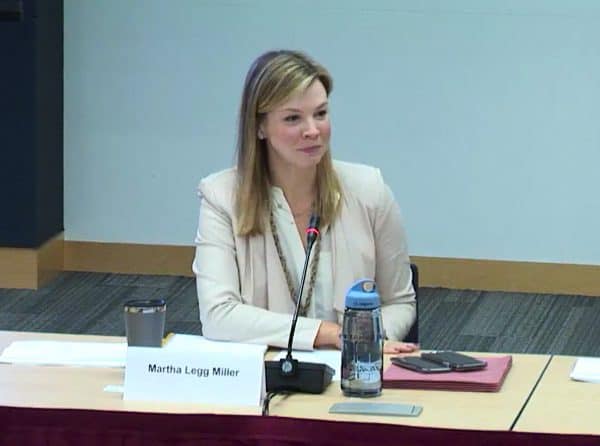
The Securities and Exchange Commission (SEC), Office of the Advocate for Small Business Capital Formation, has published its inaugural report on the ability for small businesses in the US to access growth capital.
The Advocate is a newly-formed sector of the SEC created by legislation signed into law during the waning days of the Obama administration.
The Advocate is expected to provide assistance to small businesses, conduct outreach to better understand the obstacles small businesses face when attempting to access the capital markets and as mandated by the law, must report their findings to Congress each year. The mission of the Advocate is to give small businesses, the core of the US economy, a much-needed voice within the halls of the SEC – an agency that typically focuses much of their attention on big businesses, at times to the detriment of smaller firms. A complete description of the Advocate’s responsibilities is available here.
While the SEC took its time in hiring an Advocate, in December 2018, the Commission selected Martha Legg Miller to manage the important position. She began her leadership in January (just in time for the government to shutdown).
Legg Miller views her office as a “startup within the government.” A business plan outlining objectives has been published to help guide the Advocate’s mission.
The report does a good job of outlining the options for all businesses to raise capital under both exempt and public offerings. It also breaks down the historical data, showing Reg D as the most popular path (funding raised) and expected concentrations of capital raising activity on the coasts.
While a good amount of press is given to venture capital, angels and online capital formation, the truth is that most early-stage businesses raise money the old fashioned way. Using their own money. Access to bank loans has diminished and equity funding remains relatively small.
Accredited investors stand at 13% of the US households, according to the report, this is a number that may soon change for the better if the SEC has its way.
Regarding Venture Capital, these firms (or individuals) only fund a small percentage of early-stage firms (0.5% annually) but where they do – the impact on the economy is positive:
“Increases in the availability of VC funding in metro areas have been correlated with job growth.”
 Private equity is in the mix too – funding later stage firms, “with return prospects following restructuring, realized through dividends and/or sale of the target company, often funded by a combination of investor equity and debt.”
Private equity is in the mix too – funding later stage firms, “with return prospects following restructuring, realized through dividends and/or sale of the target company, often funded by a combination of investor equity and debt.”
The report highlights the fact that robust private markets have supplanted public markets to a point that fewer and fewer companies are going public – and when they do, it is at a more mature stage than in the past (perhaps due to excessive regulations + cost?).
This is a good report combining a lot of fragmented information that has been mentioned elsewhere in the past but the Advocate is completing the puzzle of access to capital. The report affirms that most smaller firms are being cut out of the capital equation – even when the support of smaller businesses and startups is vital to the health of the economy and overall prosperity. The problem is even worse in underserved markets such as minority businesses or communities outside metro centers known for innovation and access to risk capital.
So what needs to be done? The Advocate has compiled a solid list of needed legislative and regulatory objectives.
The SEC’s current regulatory harmonization consultation is at the top of the list:
“In meeting with businesses and their investors across the country about capital formation, one of the most consistent critiques expressed has been that the current exempt offering framework is complex and confusing. While the current rules contain a relatively broad “menu” of tools to raise capital, the requirements for each differ and in some cases conflict. This challenging regulatory puzzle is understandably difficult to navigate, with each puzzle piece originating at different times and in response to different policy demands, with origins all the way back to 1933 with the Securities Act’s passage. A complex path to capital to grow, scale, and mature makes it all the more challenging for companies to fulfill our collective expectation of new entrants joining the public markets to supplant the past two decades’ approximate 50% drop in listed companies. It is imperative that companies and investors have navigable and functional tools for the exchange of capital in early, pre-IPO stages to build the pillars of tomorrow’s public markets.”
Other steps to improve access to capital to these smaller firms include:
- An update to the definition of an accredited investor to broaden access to a wider population.
- Retail investor access to pooled private funds
- Clarity around “finders” who “often bridge the gap between entrepreneurs who need funding and potential investors interested in supporting emerging companies by making introductions, often for a fee.”
- Fix Regulation Crowdfunding (Reg CF) by increasing the funding cap, allowing SPVs, and more
- Scaled reporting obligations for smaller firms.
Crowdfund Insider contacted David Burton, a Senior Fellow in Economic Policy at the Heritage Foundation who runs a very prominent securities regulatory working group in Washington, DC, for his feedback on the report. Burton had this to say:
“The report provides good information about entrepreneurial capital formation and the activities of the office. It accurately identifies a number of serious regulatory problems and proposes solutions. The proposed solutions regarding crowdfunding are specific and actionable. The proposed broadening of the definition of an accredited investor is actionable but quite modest in scope. The proposed solutions regarding “harmonization,” retail investor access to pooled vehicle, finders and scaled obligations for smaller reporting companies are very general and not really actionable. There is more work to be done.”
This is a laudable first report from the Advocate. If you are in the policy realm and understand the profound benefits of small business then this is a must-read report. Hopefully, Congress will take the time to review this document and act in areas that demand their attention. The SEC is already moving in the right direction on several of these items like an update to the definition of an accredited investor.

